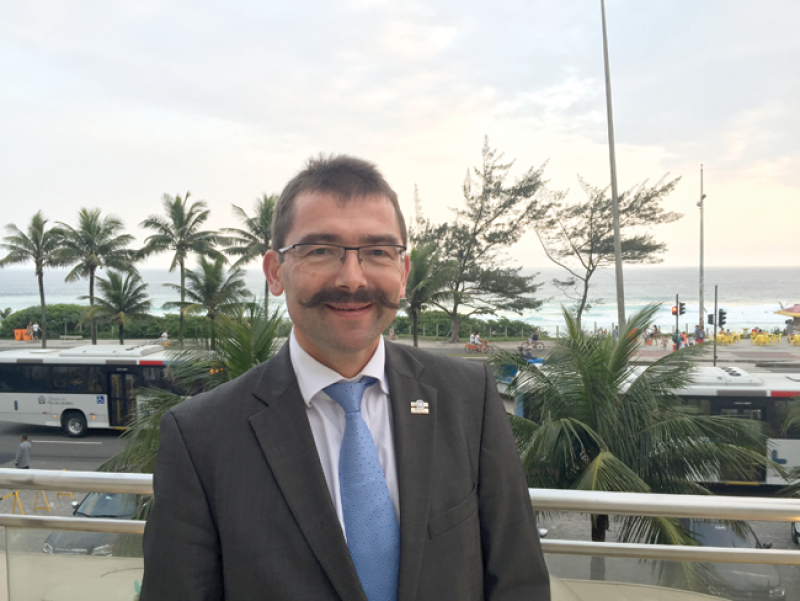
The lines of flags along the desks at yesterday’s Executive Committee meeting are a powerful visual symbol of the scope of AIPPI’s global reach. But they are also a reminder that AIPPI is essentially a federal association, built on the strength of its national and regional groups, which now number 66.
At the apex of these groups are three bodies: the Council of Presidents, the Executive Committee and the Bureau. The reforms that have been discussed by the ExCo, and which are approved to be finalised at the General Assembly tomorrow, are designed to streamline the association’s structure, remove duplication of work and ensure that it provides the best possible opportunity for members to become involved and develop their IP knowledge.
“The proposal is essentially to make the ExCo the main decision-making body of the association,” says Laurent Thibon from France, who as AIPPI Secretary General has been at the centre of the proposals for reform. “If these proposals are accepted, the ExCo will be able to vote on everything based on recommendations from the different statutory committees. The Council of Presidents will be better able to help the national and regional groups exchange knowledge and experience.”
Reducing duplication of work
The changes will also affect the Bureau, on which AIPPI’s different component parts are represented. In future, there will be an equal number of Bureau members from the Presidency (including the addition of a second vice-president), the Reporter General team and the Secretary General, with the Treasurer General also on board. In due course, the terms of the Reporter General and Secretary General will be staggered so they do not both change at the same time. That will give more continuity in AIPPI’s work.
“The changes may seem confusing, but they will be important in reducing duplication,” says Thibon. “To give just one example: elections used to require recommendations from the nomination committee, which had to be approved by the Council of Presidents and the ExCo. That meant we had to do the work three times.”
Moreover, the structural changes are just one aspect alongside other measures being taken to help AIPPI better serve its members and help them to get involved. This year has also seen the first steps towards Congress becoming paperless, the approval of a 50% reduction in fees for young members (up to 35 years old), full-time academics, judges and officials from national offices and the appointment of John Bochnovic as Executive Director (see article overleaf).
This last change in particular is likely to affect some of the Secretary General’s activities, says Thibon. He believes it is too early to say how exactly things will change, though he added that he would welcome any support in the sometimes all-consuming task of representing AIPPI to the outside world. Whatever happens, he affirms that he will remain closely involved with the running of the association. “I love AIPPI. On the one hand, I enjoy the substantive discussion of IP topics which are always of wide interest, and the tremendous work done by the groups and members. On the other hand, I value the opportunity to make friends from around the world.”
“Ultimately, we should always remember that and make sure everything is working properly so that AIPPI can do the real work of studying IP.”










